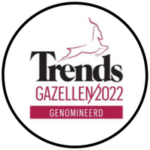Summary In the contemporary business environment, digital procurement is becoming increasingly popular and sought after by businesses around the world. The relationships …
Discover how ESG is transforming risk management in procurement
Is ESG an option for businesses?
ESG is now a fundamental part of procurement, shaping responsible sourcing and long-term business resilience.
With 83% of consumers expecting companies to lead on ESG best practices, it is no longer just a corporate responsibility—it is a critical risk management tool. From regulatory compliance to supplier transparency and ethical sourcing, ESG ensures businesses mitigate risks, enhance brand reputation, and drive sustainable growth. Ignoring ESG is no longer an option; it is a necessity for staying competitive and future-proofing operations.
Why ESG is critical for risk management in procurement
ESG is no longer just a corporate responsibility—it is a key driver of risk management. 89% of investors factor ESG considerations into their decisions, recognising the direct link between sustainability and business stability.
By embedding ESG principles into procurement, companies can mitigate major risks, from supply chain disruptions caused by unethical labour practices to reputational damage from unsustainable sourcing. Neglecting ESG can lead to regulatory penalties, financial losses, and weakened investor confidence.
The business case is clear: companies with higher ESG scores experience lower capital costs, according to 50.1% of investors. Prioritising ESG is not just about compliance—it is about securing long-term resilience and profitability.
Key ESG risks in procurement and how to manage them
Effective procurement strategies must address ESG risks to ensure resilience, compliance, and ethical operations.
Environmental risks
Challenges: Climate change, resource scarcity, pollution
Mitigation: Source from sustainable suppliers, implement carbon reduction initiatives and enforce strict environmental standards in contracts.
Social risks
Challenges: Labour violations, unsafe conditions, impact
Mitigation: Conduct audits, enforce fair labour policies, and partner with ethical suppliers to ensure worker well-being and social responsibility.
Governance risks
Challenges: Corruption, fraud, regulatory non-compliance
Mitigation: Strengthen diligence, implement transparent policies, and ensure compliance with regulations to safeguard against unethical practices.
A proactive approach to ESG risk management mitigates potential disruptions and enhances brand reputation, investor confidence, and long-term business stability.
What is the role of technology in ESG risk management in procurement?
Technology is transforming how organisations identify, track, and mitigate ESG risks in procurement. Advanced tools like AI, blockchain, and data analytics provide greater transparency, efficiency, and compliance in supply chains.

AI and data analytics
Predict risks, monitor supplier behaviour, and analyse real-time ESG performance.

Blockchain
Ensures supply chain traceability, reducing fraud and verifying ethical sourcing.

IoT and automation
Monitor environmental consequences, track emissions, and optimise resource usage.
These technologies enhance supply chain visibility and ESG compliance monitoring, enabling businesses to proactively manage risks, meet regulatory standards, and build more sustainable procurement strategies.
Strategies for building a resilient and sustainable supply chain
With 82% of investors believing ESG should be integral to business strategy, procurement leaders must embed sustainability and resilience into supply chains.
Integrate ESG into supplier selection
Prioritise suppliers with strong ESG credentials, ethical sourcing practices, and a commitment to sustainability.
ESG-driven contract management
Include ESG clauses in contracts, enforce sustainability KPIs, and conduct regular audits to ensure compliance.
Collaborate for impact
Work closely with suppliers to improve ESG performance, share best practices, and drive innovation in procurement.
By making ESG a core part of procurement, businesses can mitigate risks, enhance investor confidence, and future-proof their supply chains.
Ready to strengthen your risk management in procurement with Kronos Group?
At Kronos Group, we help businesses transform procurement into a strategic asset. Our expertise in ESG-driven procurement, risk mitigation, and sustainable supply chain management ensures your operations stay resilient, compliant, and competitive.
- Tailored procurement solutions aligned with your business goals.
- Strategic supplier management to enhance ESG performance.
- Cutting-edge digital tools for procurement automation and risk monitoring.
- Expert consultants who embed best-in-class procurement practices.
Strengthen your procurement risk management with a partner who drives sustainable growth. Let’s build a future-proof strategy together through procurement consulting.

Stay up-to-date on the latest insights on procurement, finance, and project management.
Summary Strategic procurement has become a necessity in today’s business world and organisations try to remain competitive. Having the right procurement strategies …
Summary The world of consulting has been undergoing a massive transformation and management consulting jobs are experiencing the impacts of these changes. …
FAQ
ESG in procurement risk management involves incorporating Environmental, Social, and Governance criteria into decision-making processes to identify and mitigate risks in the supply chain. This includes assessing suppliers’ sustainability practices, labour conditions, and ethical standards to ensure long-term resilience and compliance with global regulations.
ESG factors are critical for supply chains as they help businesses mitigate risks like reputational damage, regulatory penalties, and operational disruptions. By prioritising ESG, organisations can build more sustainable, ethical, and transparent supply chains, which are increasingly demanded by stakeholders and consumers.
Businesses can ensure ESG compliance by:
- Setting clear ESG criteria for suppliers and conducting regular audits.
- Leveraging technology like blockchain for supply chain transparency.
- Staying updated on global regulations and aligning with industry standards.
- Collaborating with suppliers to improve sustainability and ethical practices.














